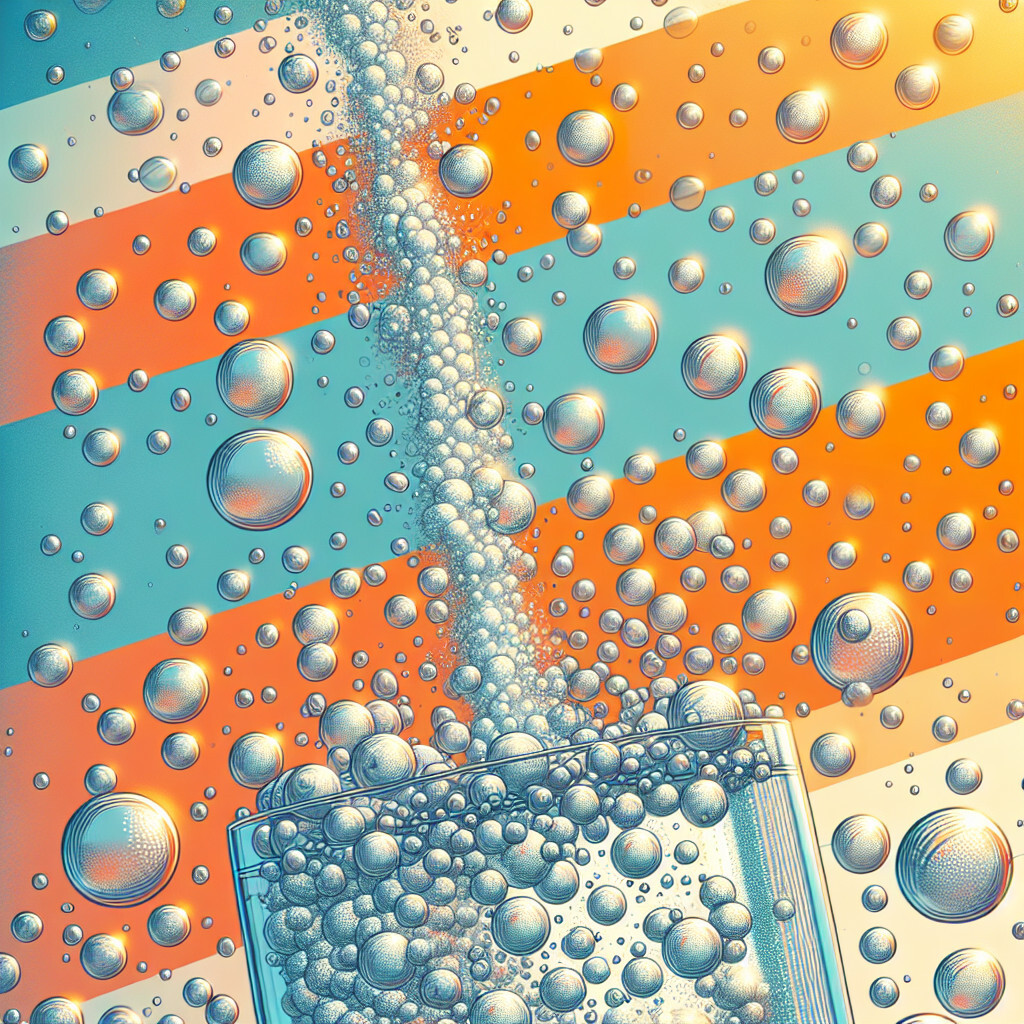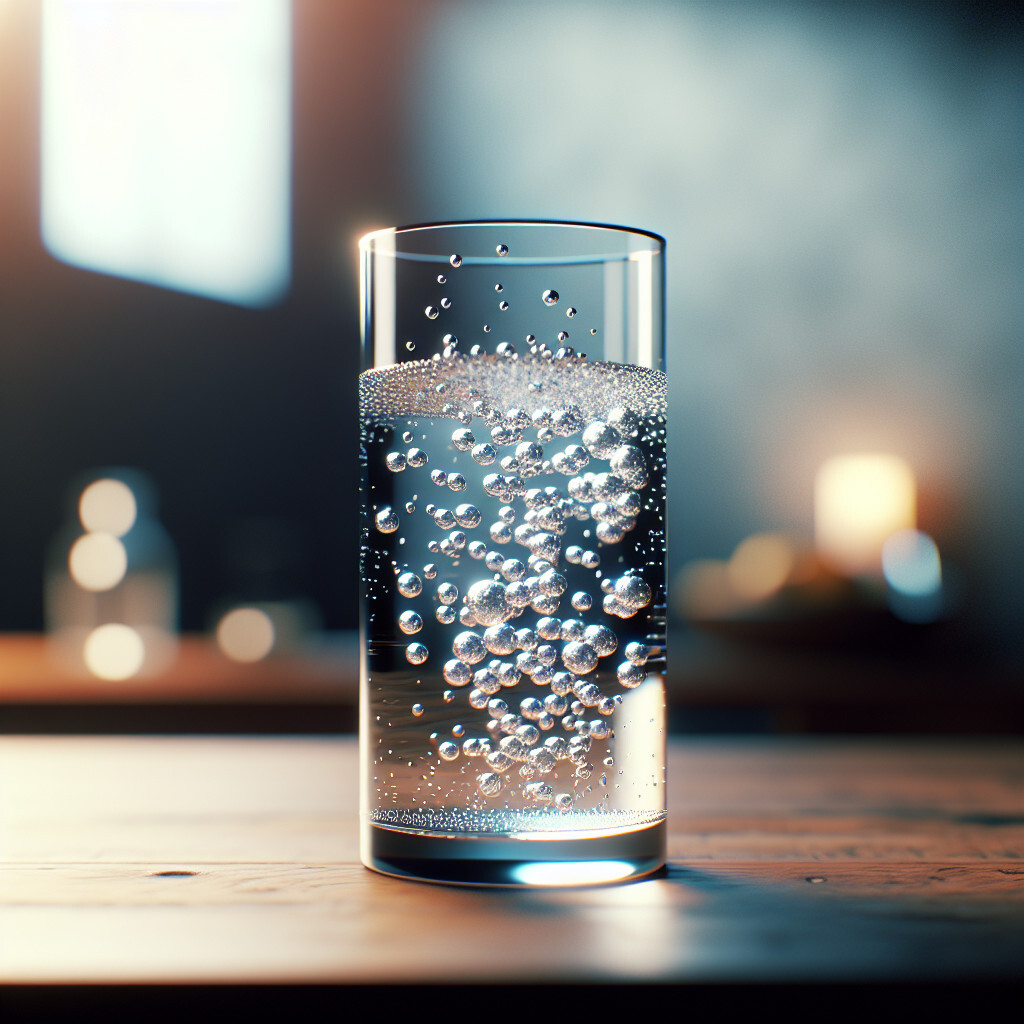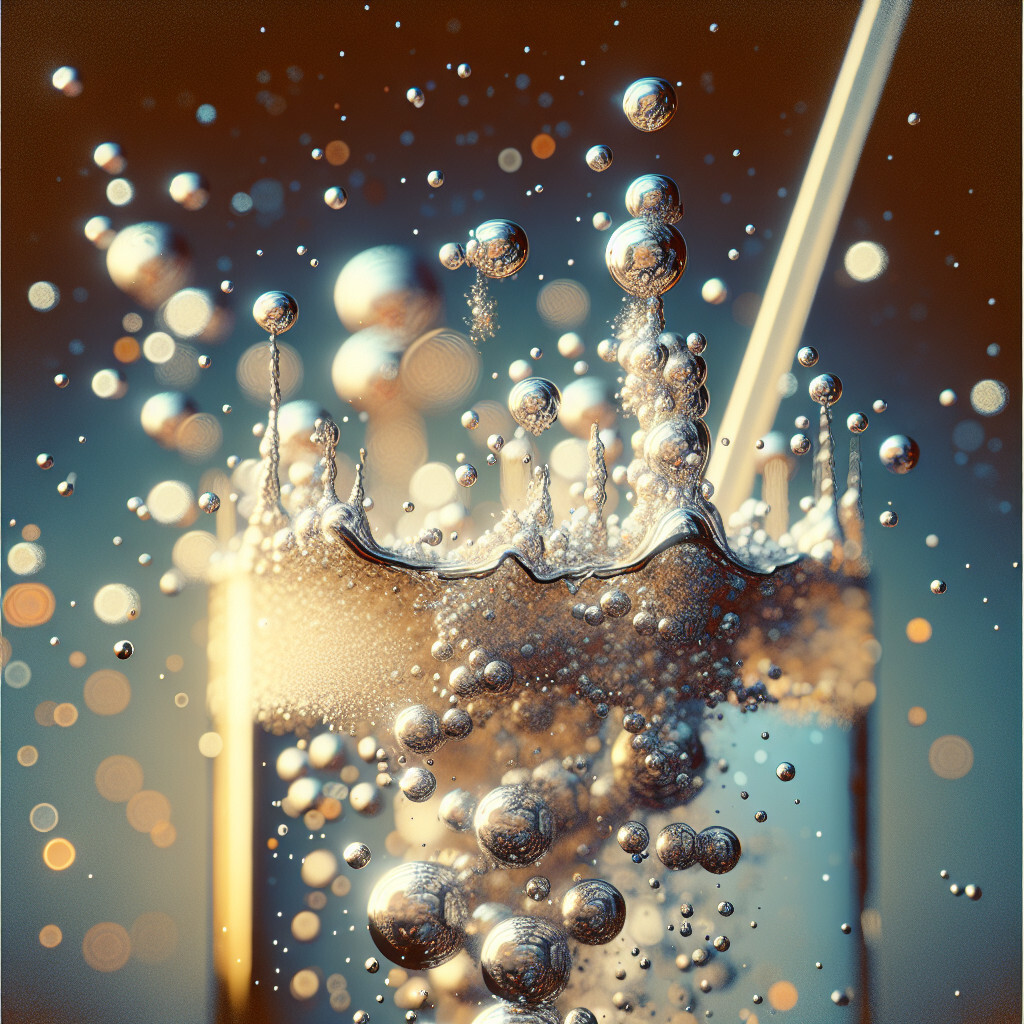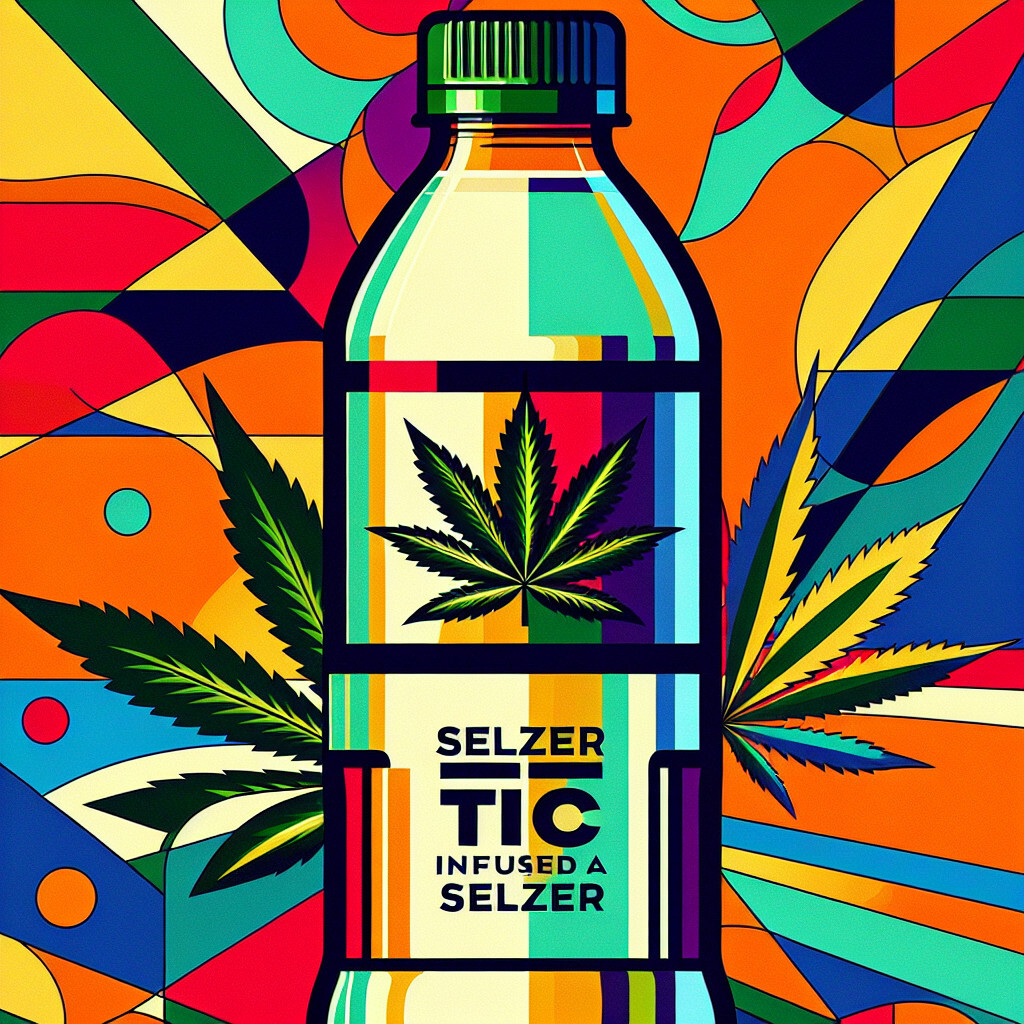-
Table of Contents
“Quench your thirst, not your fast – Seltzer Water.”
Introduction

Seltzer water during fast refers to the consumption of carbonated water, also known as seltzer water, while observing a period of abstaining from eating. This practice is common among individuals who are fasting for health, weight loss, or religious reasons. Seltzer water is calorie-free, hydrating, and can help alleviate feelings of hunger, making it a popular choice for those fasting. However, it’s important to note that while seltzer water can make fasting more bearable, it does not provide the nutrients that the body needs during prolonged periods of fasting.
The Role of Seltzer Water in Maintaining Hydration During Fasting
Fasting, a practice that has been around for centuries, is often associated with religious observances, weight loss, or detoxification. Regardless of the reason, it is crucial to maintain hydration during fasting periods. One beverage that has gained popularity in recent years for its role in maintaining hydration during fasting is seltzer water.
Seltzer water, also known as sparkling water, is a carbonated beverage that is often consumed as a healthier alternative to sugary sodas. It is simply water in which carbon dioxide gas has been dissolved under pressure, resulting in a bubbly drink that can be quite refreshing. Some brands of seltzer water also add minerals to improve the taste, but it generally contains no calories, making it an ideal choice for those who are fasting.
During fasting, the body is deprived of its usual intake of food and nutrients, which can lead to dehydration if not properly managed. Dehydration can cause a range of health problems, from mild headaches and fatigue to serious conditions like heatstroke. Therefore, it is essential to drink plenty of fluids during a fast to replace the water that is lost through normal bodily functions such as breathing, sweating, and digestion.
Seltzer water can play a significant role in maintaining hydration during fasting. Firstly, the carbonation in seltzer water can make it more satisfying to drink than regular water, which can encourage increased fluid intake. This is particularly beneficial during fasting, when the body’s need for water is heightened.
Secondly, seltzer water can help to alleviate some of the discomforts that are often associated with fasting. The bubbles in seltzer water can create a feeling of fullness, which can help to curb hunger pangs. Additionally, the carbonation can also aid in digestion and help to relieve symptoms of indigestion, which can sometimes occur during fasting.
However, it is important to note that not all seltzer waters are created equal. Some brands contain added sugars, artificial sweeteners, or other additives that can interfere with the fasting process. Therefore, it is crucial to choose a brand of seltzer water that is free of these additives. Reading the label carefully can help to ensure that you are choosing a product that is truly beneficial for your fast.
In conclusion, seltzer water can be a valuable tool in maintaining hydration during fasting. Its refreshing taste and satisfying bubbles can encourage increased fluid intake, while its ability to create a feeling of fullness and aid in digestion can help to alleviate some of the discomforts of fasting. However, it is important to choose a brand of seltzer water that is free of added sugars and other additives to ensure that it is truly beneficial for your fast. As with any health-related practice, it is always best to consult with a healthcare professional before beginning a fast to ensure that it is safe and appropriate for your individual health needs.
Understanding the Impact of Seltzer Water on Fasting: A Comprehensive Guide
Fasting, a practice that has been around for centuries, is often associated with religious observance but has recently gained popularity in the health and wellness sector. The benefits of fasting range from weight loss to improved mental clarity, and even potential longevity. However, one question that often arises during a fast is the consumption of beverages, particularly seltzer water. This article aims to provide a comprehensive guide on the impact of seltzer water on fasting.
Seltzer water, also known as sparkling water, is a carbonated beverage that is often consumed as a healthier alternative to sugary sodas. It is simply water in which carbon dioxide gas has been dissolved under pressure. This process, known as carbonation, gives the water its characteristic bubbles and fizzy sensation. Seltzer water is typically devoid of any calories, sugars, or artificial sweeteners, making it a seemingly ideal beverage for those who are fasting.
The primary rule of fasting is to abstain from consuming any food or drink that contains calories, as this would break the fast. Since seltzer water is calorie-free, it technically does not break a fast. However, the impact of seltzer water on fasting is not as straightforward as it may seem. There are several factors to consider, including the type of fast, the individual’s metabolic response, and the potential effects of carbonation on the digestive system.
In terms of the type of fast, there are various forms, including water fasts, juice fasts, and intermittent fasting. In a water fast, only water is consumed, and seltzer water would be acceptable as it is essentially water with added carbonation. In a juice fast, only fruit and vegetable juices are consumed, and seltzer water could be a suitable addition. In intermittent fasting, where eating is restricted to certain hours of the day, seltzer water can be consumed during the fasting period without breaking the fast.
However, the individual’s metabolic response to seltzer water during a fast can vary. Some people may experience a spike in insulin levels due to the carbonation in seltzer water. This insulin spike could potentially disrupt the metabolic state of fasting, even though no calories have been consumed. It’s important to note that this response is not universal and may not occur in everyone.
Furthermore, the carbonation in seltzer water can have effects on the digestive system. Some people may experience bloating or a feeling of fullness due to the gas bubbles. This sensation could potentially curb hunger pangs during a fast, making it easier to adhere to the fasting period. On the other hand, some people may find that the carbonation triggers acid reflux or heartburn.
In conclusion, the impact of seltzer water on fasting is multifaceted and can vary from person to person. While it is generally acceptable to consume seltzer water during a fast due to its lack of calories, it’s important to be mindful of potential metabolic responses and digestive effects. As with any dietary practice, it’s always best to listen to your body and consult with a healthcare professional if you have any concerns.
Seltzer Water vs. Regular Water: Which is Better for Fasting?
Fasting, a practice that has been around for centuries, is often associated with numerous health benefits, including weight loss, improved metabolic health, and even a longer lifespan. However, one of the most common challenges faced by those who fast is the struggle to stay hydrated without breaking the fast. This is where the debate between seltzer water and regular water comes into play.
Seltzer water, also known as sparkling water, is a carbonated beverage that is often consumed as a healthier alternative to sugary sodas. It is made by infusing water with carbon dioxide under pressure, which creates the characteristic bubbles and fizz. On the other hand, regular water, also known as still water, is the most natural form of hydration, free from any additives or carbonation.
When it comes to fasting, the primary concern is whether the consumption of a particular beverage will break the fast. In this regard, both seltzer water and regular water are generally considered safe. They contain no calories, sugars, or proteins that could potentially trigger an insulin response and break the fast. Therefore, both can be consumed during a fast without disrupting the fasting state.
However, there are some differences between the two that may influence an individual’s choice. One of the key differences lies in the taste. Seltzer water has a slightly acidic taste due to the carbonation process, which some people find more satisfying and refreshing than regular water. This can be particularly beneficial during a fast, as it may help to curb cravings and make the fasting period more manageable.
Another factor to consider is the impact on digestion. Some studies suggest that the carbonation in seltzer water can lead to a feeling of fullness, which could be beneficial during a fast. However, others argue that it can cause bloating and gas, which may not be ideal when fasting.
On the other hand, regular water is known for its role in promoting optimal digestion and hydration. It is easily absorbed by the body, making it an efficient way to stay hydrated during a fast. Moreover, it does not carry the risk of causing bloating or gas, making it a more comfortable choice for some.
In terms of mineral content, some brands of seltzer water may contain added minerals like calcium and magnesium. These can provide additional health benefits, such as supporting bone health and aiding in muscle function. However, the amounts are usually minimal and unlikely to have a significant impact during a fast.
In conclusion, both seltzer water and regular water can be consumed during a fast without breaking it. The choice between the two largely comes down to personal preference. If you enjoy the fizz and find that it helps you manage your fast better, seltzer water could be a good option for you. However, if you prefer a more natural form of hydration and want to avoid any potential digestive discomfort, regular water would be the way to go. As always, it is important to listen to your body and choose what works best for you.
The Benefits and Drawbacks of Consuming Seltzer Water During a Fast
Fasting, a practice that has been around for centuries, is often undertaken for religious, health, or weight loss reasons. It involves abstaining from food and sometimes drink for a specific period. During this period, many people wonder what they can consume without breaking their fast. One such beverage that often comes under scrutiny is seltzer water. This article aims to explore the benefits and drawbacks of consuming seltzer water during a fast.
Seltzer water, also known as sparkling water, is water that has been carbonated. It is free of calories, sugar, and artificial ingredients, making it a seemingly ideal beverage for those who are fasting. One of the primary benefits of consuming seltzer water during a fast is its ability to keep the body hydrated. Hydration is crucial during fasting as it helps maintain bodily functions and prevents dehydration, which can lead to headaches, fatigue, and dizziness.
Moreover, the carbonation in seltzer water can provide a feeling of fullness. This sensation can be particularly beneficial during a fast, as it may help curb hunger pangs and make the fasting period more manageable. Additionally, seltzer water can serve as a satisfying substitute for those who miss the ritual of eating and drinking during their fast. The bubbles provide a unique texture that can mimic the experience of consuming solid food or sugary drinks, without the caloric intake.
However, while there are clear benefits to consuming seltzer water during a fast, there are also potential drawbacks to consider. Some people may find that the carbonation in seltzer water leads to bloating or discomfort. This can be particularly problematic during a fast, as the discomfort may be more noticeable due to the absence of food in the stomach.
Furthermore, while seltzer water is generally considered safe for consumption during a fast, it’s important to note that not all sparkling waters are created equal. Some brands may add artificial sweeteners or flavors to their products, which could potentially impact the effectiveness of the fast. Therefore, it’s crucial to read labels carefully and choose plain seltzer water without any added ingredients.
Another potential drawback is the impact of seltzer water on dental health. The carbonation process results in a slightly acidic beverage, which, if consumed in large quantities, could potentially harm tooth enamel. However, this risk is relatively low, especially if seltzer water is consumed in moderation and not used as a sole source of hydration during the fast.
In conclusion, seltzer water can be a beneficial addition to a fasting regimen due to its hydrating properties and ability to provide a sense of fullness. However, potential drawbacks such as bloating, the presence of artificial ingredients in some brands, and potential dental health concerns should be considered. As with any dietary practice, it’s essential to listen to your body and consult with a healthcare professional if you have any concerns. Ultimately, whether or not to include seltzer water during a fast is a personal decision that should be based on individual comfort, health considerations, and fasting goals.
Q&A
1. Question: Can I drink seltzer water during a fast?
Answer: Yes, you can drink seltzer water during a fast. It does not contain calories or sugars that would break your fast.
2. Question: Does seltzer water help with hunger during fasting?
Answer: Yes, seltzer water can help with feelings of hunger during fasting because it can make you feel full due to the carbonation.
3. Question: Can drinking too much seltzer water break my fast?
Answer: No, drinking too much seltzer water will not break your fast. However, it’s important to note that excessive intake may lead to bloating or discomfort.
4. Question: Is flavored seltzer water allowed during fasting?
Answer: It depends on the ingredients. If the flavored seltzer water contains calories, sugars, or artificial sweeteners, it could potentially break your fast. Always check the label to be sure.
Conclusion
Seltzer water, being calorie-free and non-nutritive, does not break a fast and can be consumed without disrupting the fasting state. It can also help to alleviate feelings of hunger and keep the body hydrated during the fasting period.






